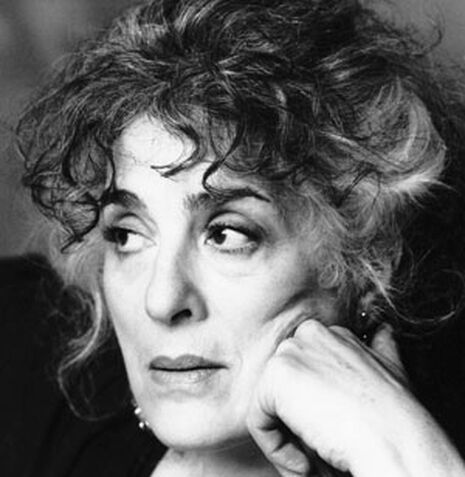In Conversation with Eleanor Bron
Isabelle Barber sits down with Eleanor Bron at Watersprite: The Cambridge International Student Film Festival

Eleanor Bron: first female student to perform at a Footlights Smoker, and to me and many other children who grew up with The Little Princess on repeat, the incarnation of the formidable Miss Minchin. Bron appeared at Watersprite festival last weekend, and I was lucky enough to be able to interview her.
At Cambridge, Bron studied French and German, but says, “the real education was the people you met and what you did here”. During her “three years growing-up time” at Newnham, her outlook on life changed completely and she enjoyed mixing with people from many walks of life and meeting people she never would have met otherwise. Cambridge showed her what she could do with her life, and freed her from the feeling that she must marry and have children.
Thankfully, Bron ignored her DoS’s discouragement from being in the Footlights, the platform for her lengthy career in the acting industry. She describes life as an actress as never knowing what is around the corner, and “never knowing that you have succeeded, until you’ve failed!” Claiming that she would have been “frightened and bored” and likely entirely put off acting entirely if she had gone to drama school, Bron talks of the “beaten path” that there is within the acting industry today that did not exist when she graduated. Her criteria as to which jobs she goes for was identical to that of Jim Broadbent’s, as I discovered at Watersprite’s Closing Ceremony, so it seems a safe bet to follow the advice to only take on roles in plays/films that you yourself would want to see.
Despairing over the proportionately small amount of parts for women, Bron decided to stop complaining and do something about it; her current project is a play she has written for six women over fifty called The Delphic Oracle. It is “shocking” that the current Footlights Tour consists only of men, says Bron, and she questions why they were not able to write parts for women. A Tour without women will be “a very dull evening”, she predicts.
Moving on from discussing the commodification of the Footlights, we discuss the ‘problem’ of funny women, and why men find them intimidating. We swap stories about being stood up at balls. Eleanor’s date claimed he had been in a car accident, mine in detention, and we puzzle together about why they lost their nerve. A date once asked her what she liked in a man, she replied that she liked to be able to make him laugh, (her date apparently laughed at this, I congratulated her). She returned the question, what did he find attractive in women, in reply he quoted King Lear, "a woman’s voice should be soft and low". The evening progressed with Eleanor’s voice getting softer and lower, and her date laughing more and more. Sounds successful…
On the question of the differentiation between ‘actor’ and ‘actress’, Bron believes that comedy and acting should make the most of these differences. “I don’t think I was ever a token woman”, she tells the audience.
One of her most notable roles was in The Beatles’s second film, Help, in which she plays the bewitching Ahme. Confessing that the class and gender divide between her and the band begun with neither party knowing “how to deal with” the other, The Beatles thinking of women as “chicks”, she nevertheless describes them as “good sports”, who she admires for pushing the boundaries of their trade. Help was her first feature film, and a “tremendous way to start”; Bron describes Beatlemania as a “strange kerfuffle”, and talks of her surprise as they landed to film in the Bahamas, hearing what she thought were hundreds of starlings, turned out to be thousands of screaming teenage girls. Talking to me about her worst moment on set – nearly drowning due to the dramatic cloak she had to wear over her wetsuit – she teasingly said that she was not at liberty to divulge her favourite moment, nor, to my frustration, who her favourite Beatle was, though she did say that “Paul was much more sociable”.
 News / Uni Scout and Guide Club affirms trans inclusion 12 December 2025
News / Uni Scout and Guide Club affirms trans inclusion 12 December 2025 News / Cambridge Vet School gets lifeline year to stay accredited28 November 2025
News / Cambridge Vet School gets lifeline year to stay accredited28 November 2025 Science / Did your ex trip on King’s Parade? The science behind the ‘ick’12 December 2025
Science / Did your ex trip on King’s Parade? The science behind the ‘ick’12 December 2025 News / Cambridge study finds students learn better with notes than AI13 December 2025
News / Cambridge study finds students learn better with notes than AI13 December 2025 News / Pembroke to convert listed office building into accom9 December 2025
News / Pembroke to convert listed office building into accom9 December 2025







